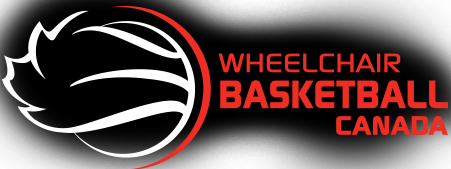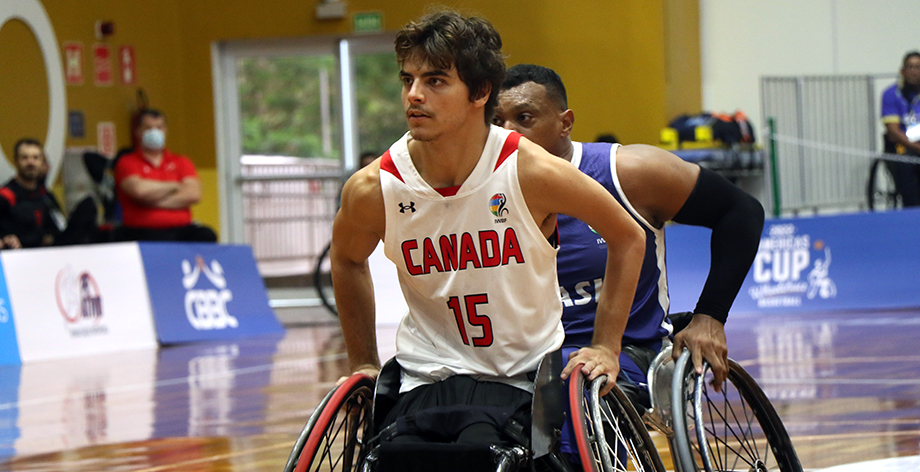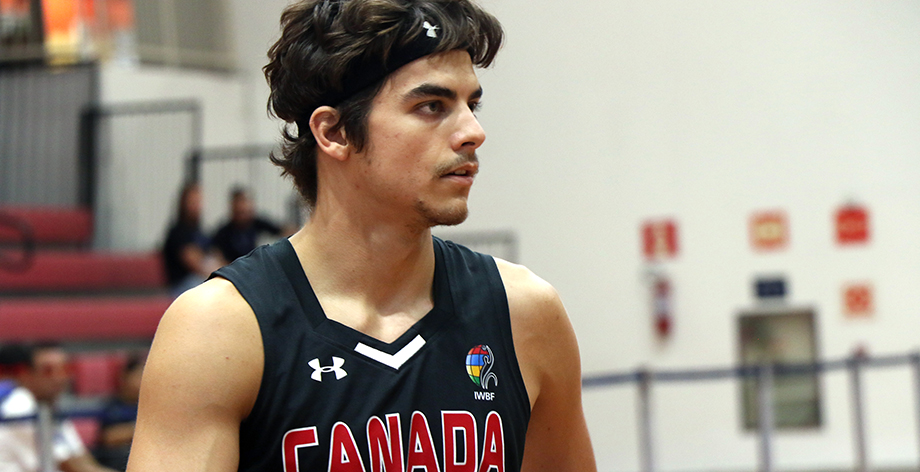Garrett chronicles his journey from growing up in Regina and discovering wheelchair basketball to moving to Toronto and earning a roster spot on the Senior Men’s National Team in this month’s Athlete Spotlight presented by Toyota
Growing up in Regina was a little bit difficult at times with the winter weather and being in a wheelchair, but my family made it pretty easy for me. My family helped a lot. I also had many good friends growing up, and they were helpful.
I have one younger sister, she’s 19. We’re definitely the siblings that argue and fight a bit—more so when we were growing up. We’re better now. She’s the artsy one in the family, and I’m the sporty one.
I was born with muscular dystrophy—to keep it simple, it limits my joints. Particular joints, such as my wrist and elbow joints on my left arm, are tight, making it harder to gain muscle. The condition affects my mobility and joints—even if I had mobility in the joints, it would be hard to gain the muscle.
Introduction to wheelchair basketball
I started with wheelchair basketball when a man named Mike Brady came to my elementary school when I was eight years old. Mike saw that I was the only one in a wheelchair in my class. The teachers setup an opportunity to try wheelchair basketball with Mike.
The teachers then told my mom about the opportunity, and my mom asked if I’d be interested in trying it out. So I went and tried it out and loved it a lot, actually. Everyone was on an equal level, so it felt good.
Then Mike told me there was a minis practice on Thursdays, and my interest in the game progressed from there. I played minis till I was about 12 or 13. I was 13 years old when I first made Team Saskatchewan for Junior Nationals.
I also tried wheelchair tennis a little, but I didn’t like it as much. I just liked wheelchair basketball a lot because of the contact and the team play.
Realizing Potential
I first realized I had some potential with wheelchair basketball in 2014. That was the year I made Team Sask—I was 13, turning 14. Later that summer Mike Frogley invited me to an Under-19 camp. I didn’t perform tremendously well at the camp or anything, but just being able to go, and being invited, made me realize that maybe I can play at a higher level.
That 2014 year was big for me: Junior Nationals, the Under-19 camp and then that fall Darrell Nordell contacted me for the Canadian Under-23 team. I would come to Toronto one week a month to train with guys like Liam Hickey and Ben Moronchuk—we would all meet up at the Toronto Pan Am Sports Centre.
Junior Nationals was my first big wheelchair basketball competition, but my first actual international tournament was in 2016 in downtown Toronto—we hosted some teams.
I would say I wanted international opportunities before I realized I had the potential to play at that level. The want to play started with minis when I was eight. Then I realized I had potential in the game once Darrell started reaching out to me about the U23 opportunities.
The Under-23 tournament in 2017 was the best off court experience I ever had. It wasn’t just about the basketball, the on-court experience was fun, and it was a good team, but that experience gave me a better understanding of how tight-knit a team can be.
The Nik Goncin friendship
I was 11 or 12 years old when I first met Nik. When I first saw him, I was like, ‘This guy is the best player I’ve ever seen in my entire life, and if I can get even close to that…’
We’ve had a good relationship off the court, always. We’re always joking around, just having fun and laughing. On the court, he’s pretty competitive. I still remember little 13 or 14 year old Garrett trying to understand what he’s saying to me. I still don’t understand what he’s saying all the time.
He’s almost like an older brother to me—that’s sort of our relationship. We always stay in contact and like to chirp with each other. We like to be competitive with each other on the court.
I think I enjoy playing against Nik more than I like playing with him—we know how to push each other’s buttons on the court, and we can both just get really competitive with each other. I like that a lot.
Reaching the Senior National Team
The senior national team wasn’t even a thought until 2016. In 2016, they told me I was an alternate for the Rio Paralympic team, so I was pretty happy about that. I wasn’t expecting it at all. At that point in time, I was not really in the loop too much. When I got the call, I was really surprised.
That moment was when I was like, ‘maybe I could play on the senior team’. Then the Under-23 Worlds was in June 2017. After that tournament, Matteo Feriani convinced me to stay in Toronto that summer and train. So I was training, working hard and had the goal of making the senior team.
I was on the team in 2017 and 2018, then once I graduated high school, I moved to Toronto to train full-time in 2019, and I got cut from the team that year. That was a wake-up call for me because I knew Tokyo 2020 was around the corner, and I knew I had the ability and talent to be on that team. Getting cut from the team didn’t sit well with me—I didn’t want it to end like that.
Despite getting cut, I stayed in Toronto and continued to train, and I made the team the following year. In the moment, my decision to stay in Toronto and train, even though I got cut, was probably one of the smartest choices I’ve ever made.
I never realized the game would take me all over the world. Even when I was 15-16 years old, I always thought I was just having fun. I’m just having a good time. Then things started to get more serious.
My favorite city I’ve visited with wheelchair basketball is probably Hamburg, Germany it’s really nice, but Tokyo is pretty cool, too—it’s hard to pick between the two.
Tokyo 2020 Paralympics
In the moment, the Paralympic experience was surreal. It was hard to believe I was there. It energized me and motivated me further to work harder because seeing the game at that level made me realize I’m not there yet. I can see I have another level I can take my game to.
Advice for New Athletes
Be willing to fail and continue to learn from those failures.




